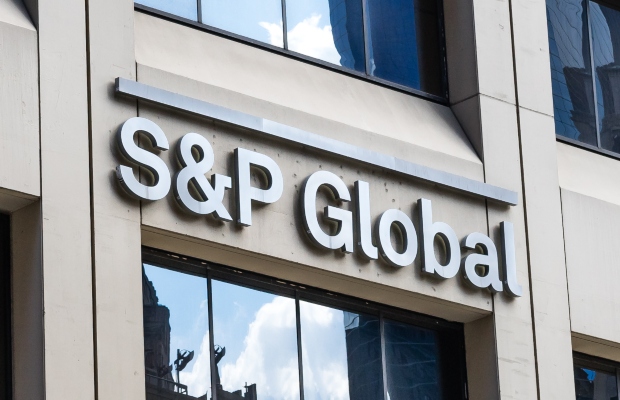Rating agency, S&P Global has indicated to raise Ghana’s long-term local currency rating over the next 12 months following a track record of successful execution under the Ghana's Extended Credit Facility (ECF).
In its upside assessment of the outlook of the Ghanaian economy, it said it could raise Ghana’s rating if there is a more pronounced economic recovery, and a strengthening of balance-of-payments performance that supports stronger fiscal and external outcomes, taking pressure off the government's financing needs and improving debt sustainability.
On the downside risk, S&P said it could lower the local currency rating over the next 12 months if unexpected negative policy developments undermine access to financing from the local market or official sources, or there is a significant delay in International Monetary Fund (IMF) board approval of Ghana's Extended Credit Facility, which was endorsed at the IMF staff level in December 2022.
“Over the medium term, possible setbacks in ECF execution could hinder access to financing, potentially from other multilateral lending institutions (MLIs), and renegotiation of Paris Club debt. This scenario would likely further damage local investor confidence and could lead to a recourse to central bank financing amid worsening inflation and currency dynamics, putting downward pressure on our long-term local currency rating”.
S&P on February 24, 2023, raised its long- and short-term local currency sovereign credit ratings on Ghana to 'CCC+/C' from 'SD/C' (selective default).
At the same time, it affirmed it 'SD/SD' long- and short-term foreign currency ratings.
In addition, it lowered the foreign currency issue ratings to 'D' (default) from 'CC' on three U.K. law Eurobonds, including those maturing on July 7, 2023; November 2, 2027 and November 2, 2025.
Outlook reflects government’s improved refinancing profile
S&P said the stable outlook on the long-term local currency rating reflects the government's improved refinancing profile, and reduced cost of debt as a consequence of its domestic debt rescheduling.
This, it said, is balanced against still-challenging domestic and external liquidity conditions, very high inflation, currency volatility, and uncertainties in connection with ongoing efforts to restructure the sovereign's external foreign currency debt.
“Our long-term foreign currency rating remains 'SD' after the government ceased payments on foreign currency instruments. Ratings at 'SD' do not carry an outlook”, it added.
Latest Stories
-
Paris 2024: Opening ceremony showcases grandiose celebration of French culture and diversity
2 hours -
How decline of Indian vultures led to 500,000 human deaths
3 hours -
Paris 2024: Ghana rocks ‘fabulous fugu’ at olympics opening ceremony
4 hours -
Trust Hospital faces financial strain with rising debt levels – Auditor-General’s report
4 hours -
Electrochem lease: Allocate portions of land to Songor people – Resident demand
4 hours -
82 widows receive financial aid from Chayil Foundation
5 hours -
The silent struggles: Female journalists grapple with Ghana’s high cost of living
5 hours -
BoG yet to make any payment to Service Ghana Auto Group
5 hours -
‘Crushed Young’: The Multimedia Group, JL Properties surprise accident victim’s family with fully-furnished apartment
5 hours -
Asante Kotoko needs structure that would outlive any administration – Opoku Nti
6 hours -
JoyNews exposé on Customs officials demanding bribes airs on July 29
6 hours -
JoyNews Impact Maker Awardee ships first consignment of honey from Kwahu Afram Plains
7 hours -
Joint committee under fire over report on salt mining lease granted Electrochem
7 hours -
Life Lounge with Edem Knight-Tay: Don’t be beaten the third time
8 hours -
Pro-NPP group launched to help ‘Break the 8’
8 hours

